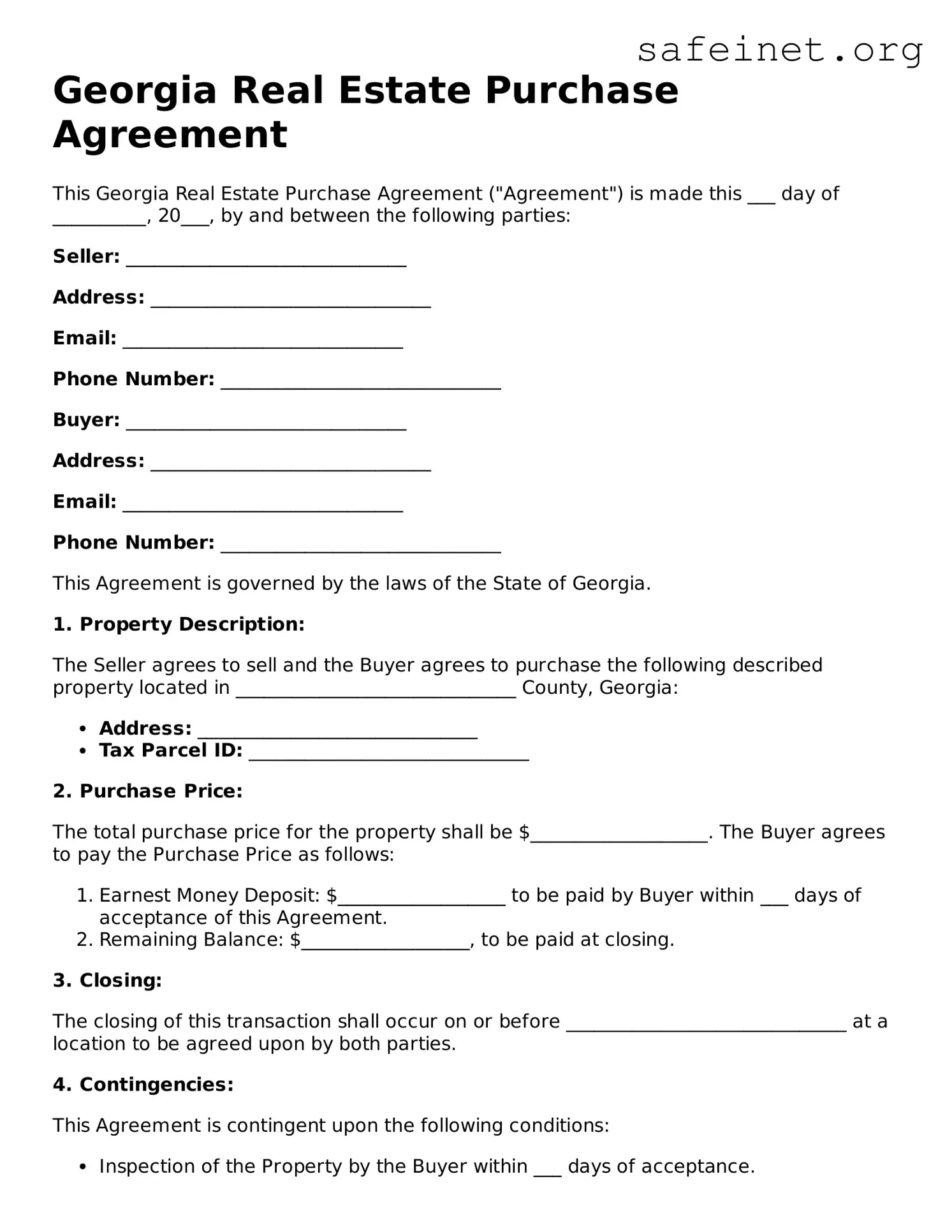Georgia Real Estate Purchase Agreement
This Georgia Real Estate Purchase Agreement ("Agreement") is made this ___ day of __________, 20___, by and between the following parties:
Seller: ______________________________
Address: ______________________________
Email: ______________________________
Phone Number: ______________________________
Buyer: ______________________________
Address: ______________________________
Email: ______________________________
Phone Number: ______________________________
This Agreement is governed by the laws of the State of Georgia.
1. Property Description:
The Seller agrees to sell and the Buyer agrees to purchase the following described property located in ______________________________ County, Georgia:
- Address: ______________________________
- Tax Parcel ID: ______________________________
2. Purchase Price:
The total purchase price for the property shall be $___________________. The Buyer agrees to pay the Purchase Price as follows:
- Earnest Money Deposit: $__________________ to be paid by Buyer within ___ days of acceptance of this Agreement.
- Remaining Balance: $__________________, to be paid at closing.
3. Closing:
The closing of this transaction shall occur on or before ______________________________ at a location to be agreed upon by both parties.
4. Contingencies:
This Agreement is contingent upon the following conditions:
- Inspection of the Property by the Buyer within ___ days of acceptance.
- Financing approval for the Buyer within ___ days of acceptance.
5. Disclosures:
The Seller agrees to provide all necessary disclosures required by law, including but not limited to:
- Lead-Based Paint Disclosure if the property was built prior to 1978.
- Property Condition Disclosure.
6. Additional Terms:
Any additional terms and conditions of this Agreement shall be attached as an exhibit and made a part of this Agreement.
7. Signatures:
IN WITNESS WHEREOF, the parties have executed this Georgia Real Estate Purchase Agreement as of the day and year first above written.
Seller's Signature: ______________________________ Date: ________________
Buyer's Signature: ______________________________ Date: ________________
